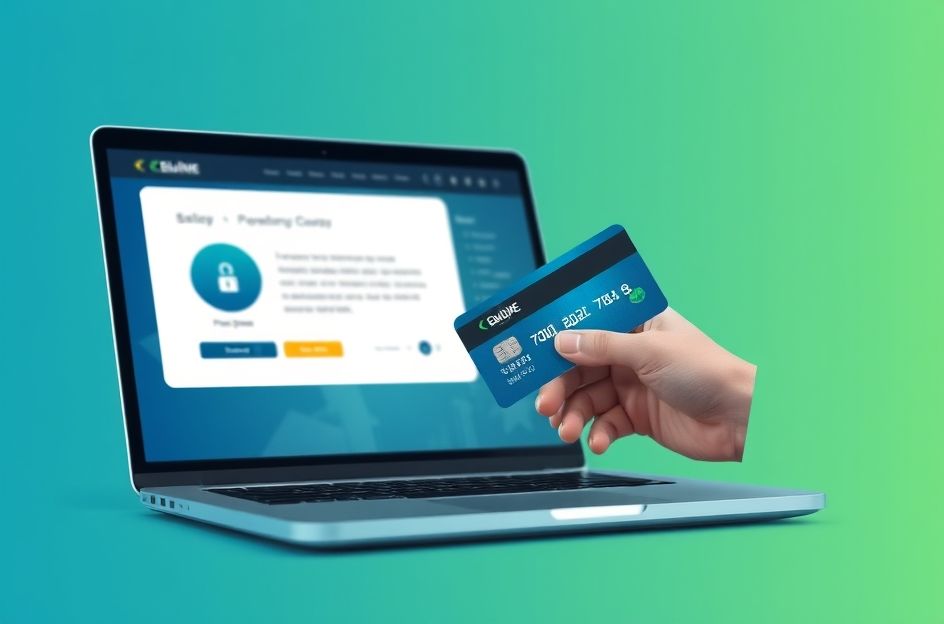Selecting the right credit card processor is a pivotal decision for any online business, influencing how you accept payments and manage finances. Two primary options exist: establishing a direct merchant account or utilizing a third-party processor. The chosen method can significantly impact your website’s operation and customer experience.
To effectively choose a credit card processor, start by outlining your specific business needs and comparing available plans. Consider factors beyond cost, such as transaction volume, security requirements, and integration capabilities. A side-by-side comparison of merchant accounts and third-party processors is essential.
**Merchant Accounts vs. Third-Party Processors**
*Merchant Accounts:* These are direct accounts established with banks or through sales agents, dedicated solely to your business. As the merchant, you have complete control and responsibility. While you’ll need to secure your own payment gateway, this arrangement provides more flexibility.
*Third-Party Processors:* These companies possess their own merchant accounts and allow businesses to process credit card payments through their infrastructure. They set the rules, and you must adhere to them. Third-party processors can be suitable in specific situations:
* Businesses that aren’t formally registered
* Businesses with a history of blacklisting
* Businesses deemed high-risk
* Businesses with poor or no credit
* Businesses processing a low volume of transactions
* Businesses lacking programming expertise for complex API integrations
**Key Considerations for Third-Party Processors**
1. Often don’t charge higher rates for high-risk businesses
2. Typically don’t conduct credit checks
3. Usually require using their proprietary gateway
4. The processor’s name appears on customer credit card statements
5. Fund deposits can take up to a month
6. Rates aren’t negotiable
Most established online businesses opt for a merchant account and payment gateway for several compelling reasons:
* *Superior Discount Rates:* Merchant accounts offer significantly better discount rates for high transaction volumes compared to third-party processors.
* *Complete Control:* Merchants have full control over their account, interacting directly with customers, and ensuring their business name appears on customer statements.
* *Transparent Checkout:* Customers remain on the merchant’s website throughout the transaction, enhancing trust and brand consistency.
* *Professional Image:* A merchant account presents a more seamless and professional experience for customers.
Applying for a merchant account involves a credit check, and the account cannot be used for personal transactions. Rates are negotiable but higher for high-risk products. You can choose a separate payment gateway, and your business name will always appear on customer statements. Funds are typically deposited within 1-3 days, although contracts can span several years.
For startups with limited budgets, cost is often the primary concern. However, business needs vary, making comparisons challenging. To streamline the process, gather data on the following fees for both third-party processors and merchant accounts:
* Setup fee: Cost to establish the account
* Discount rate: Percentage of sales taken by the processor
* Transaction fee: Flat fee per transaction
* Monthly fee: Recurring fee for account maintenance
* Gateway setup fee: Cost to integrate a payment gateway
* Gateway monthly fee: Recurring fee for gateway services
Estimate your monthly transaction volume and average customer spending to accurately compare costs. While numerous third-party processors and merchant account providers exist, understanding the nuances between them is critical. For example, PayPal and traditional merchant providers offer vastly different solutions.
**Conclusion**
While both merchant accounts and third-party processors facilitate online credit card payments, their implementation differs significantly. Each offers unique advantages. Every business must carefully consider all factors involved in accepting credit cards online, going beyond just cost. Investing slightly more in fees can often enhance the customer experience and overall website professionalism. Take the time to thoroughly explore all options to find the most cost-effective credit card processing solution tailored to your online business needs.
